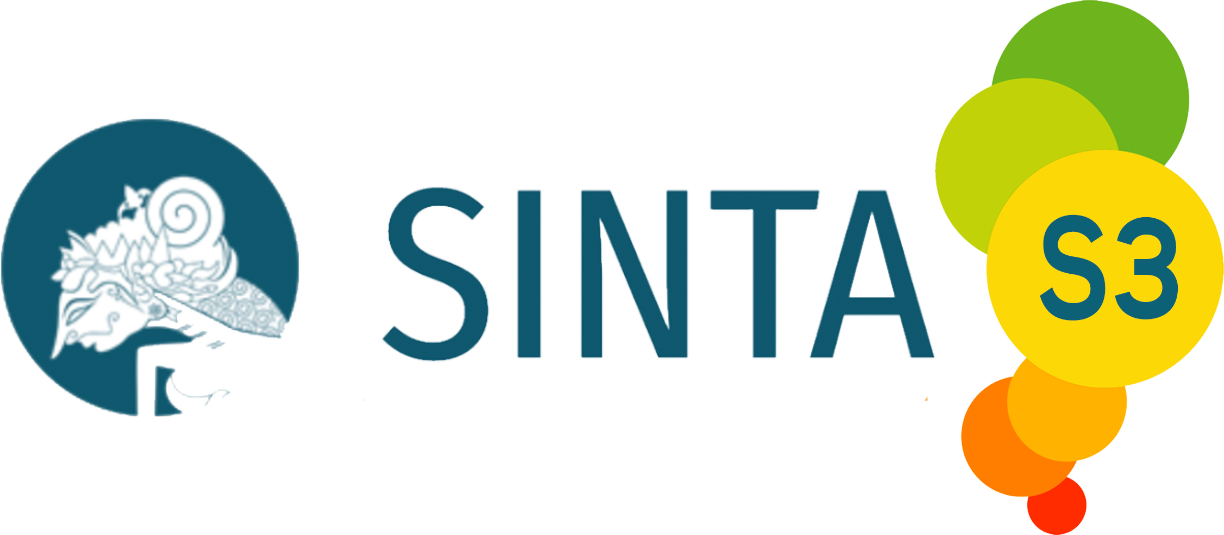Pengaruh Motivasi Mengajar dan Fasilitas Sekolah Terhadap Kompetensi Profesional Guru Matematika SMA Se-Kota Pekanbaru
Authors
Fitri Ayu Ningtiyas , Riska Ayu Ardani , Dwi Iramadhani , Yulia Zahara , Nurul Afni Sinaga , Rifaatul MahmuzahPublished:
2023-06-22Issue:
Vol. 5 No. 1 (2023): Edisi JuniKeywords:
Professional Competence; Teaching Motivation; School FacilitiesArticles
Downloads
How to Cite
Downloads
Metrics
Abstract
This study aims to examine the influence of teaching motivation and school facilities on the professional competence of high school mathematics teachers because teaching motivation is something important to consider in reviewing the performance of a teacher, as well as facilities owned by schools, completeness of facilities at schools will optimize the learning process in class. In reviewing the effect of teaching motivation and school facilities on professional competence, an inferential analysis using multiple regression. This research type is a survey with a population all of high school mathematics teachers in Pekanbaru City. Questionnaires for teaching motivation and school facilities, as well as tests in the form of multiple choice and non-test in the form of questionnaires to measure professional competence were instruments in this study. The data for this study obtained from 33 high school mathematics teachers in Pekanbaru City, 33 fellow teachers, and 909 high school students in Pekanbaru City. The result show that teaching motivation affects the professional competence of teachers and school facilities do not affect professional competence.
References
Adetayo., & Oyebola, J. (2016). Teachers’ Factors as Determinants of the Professional Competence of the Nigeria Certificate in Education Teachers. Journal of Education and Practice, 7(13), 1-11. http://iiste.org/Journals/index.php/JEP
Alif, M.H., Pujiati, A., & Yulianto, A. (2020). The Effect of Teacher Competence, Learning Facilities, and Learning Readiness on Students' Learning Achievement Through Learning Motivation of Grade 11 Accounting Lesson in Brebes Regensy Vocational High School. Journal of Economic Education, 9(2), 150-160. https://doi.org/10.15294/jeec.v9i2.40155
Badrus, M. (2018). Pengaruh Motivasi Mengajar Guru Terhadap Prestasi Belajar Siswa pada Mata Pelajaran Pendidikan Agama Islam: Studi di SMA Mardi Utomo Kecamatan Tarokan Kabupaten Kediri. Jurnal Pendidikan dan Studi Keislaman, 8(2), 143-152. https://ejournal.iai-tribakti.ac.id/index.php/intelektual/article/download/706/492/
Djaali & Muljono, P. (2008). Pengukuran Dalam Bidang Pendidikan. Jakarta: PT. Grasindo.
Ghazi, Shahzada, Shah & Shauib. (2013). Teacher’s Professional Competencies in Knowledge of Subject Matter at Secondary Level in Southern Districts of Khyber Pakhtunkwa, Pakistan. Journal of Educational and Social Research, 3(2), 453-460.
Hakim, A. (2015). Contribution of Competence Teacher (Pedagogical, Personality, Professional Competence and Social) On the Perfomance of Learning. The International Journal of Engineering and Science, 4(2), 1-12. https://doi.org/10.6084/M9.FIGSHARE.1330039.V1
Hightower, et al. (2011). Improving Student Learning By Supporting Quality Teaching: Key Issues, Effective Strategies. Bethesda, MD: Editorial Projects in Education, Inc.
Hung, L.N.Q. (2020). Teachers’ Motivation and Its Influence on Quality Education: a Study at a Center for Foreign Languages in Vietnam. Can Tho University Journal of Science, 12(3), 17-26. Doi: 10.22144/ctu.jen.2020.020
Khatoon, Azeem & Akhtar. (2011). The Impact of Different Factors on Teaching Competencies at Secondary Level in Pakistan. Interdisciplinary Journal of Contemporary Research in Business, 3(5), 648-655. https://journal-archieves8.webs.com/648-655.pdf
Kunter, M., Klusmann, U., Baumert, J., Richter, D., Voss, T., & Hachfeld, A. (2013). Professional competence of teachers: Effects on instructional quality and student development. Journal of Educational Psychology, 105(3), 805-820. https://psycnet.apa.org/doi/10.1037/a0032583
Ljubetic, M. (2012). New competences for the pre-school teacher: a successful response to the challenges of the 21st century. World Journal of Education, 2(1), 82. http://dx.doi.org/10.5430/wje.v2n1p82
McCaffrey., Lockwood., Koretz., & Hamilton. (2003). Evaluating Value-Added Models for Teacher Accountability. New York: RAND Corporation
Megasari, R. (2020). Peningkatan pengelolaan sarana dan prasarana pendidikan untuk meningkatan kualitas pembelajaran di SMPN 5 Bukittinggi. Jurnal Bahana Manajemen Pendidikan, 2(1), 636–648.
Mustafa, M. N. (2013). Factors that Influence Quality Service of Teachers. International Journal of Business and Social Research, 3(1), 32-37. https://doi.org/10.18533/ijbsr.v3i1.85
NCTM. (2009). A Vision for School Mathematics. United State of America: National Council of Teachers of Mathematics. Retrieved from http://www.nctm.org/standars.htm
Ningtiyas, F.A., et al. (2023). Pengaruh Fasilitas Sekolah Terhadap Kompetensi Pedagogik Guru Matematika SMA Se-Kota Pekanbaru. JPMIM: Jurnal Pendidikan Matematika dan Ilmu Matematika, 1(1), 10-18. https://doi.org/10.33830/hexagon.v1i1.4893.
Nurwati, U. (2015). Faktor-faktor yang Berhubungan dengan Implementasi Kurikulum 2013 Pada Proses Pembelajaran Fisika Kelas X SMA Negeri di Kota Pekanbaru. Tesis, tidak diterbitkan, Universitas Negeri Yogyakarta, Yogyakarta.
Prast, van de Weijer-Bergsma, Kroesbergen & van Luit. (2018). Differentiated Instruction in Primary Mathematics: Effects of Teacher Professional Development on Student Achievement. Journal Learning and Instruction, 54(2018), 22-34. https://doi.org/10.1016/j.learninstruc.2018.01.009
Salam, S. (2016). The Analysis Of Student’s Error On Completing Teacher Competency Test For Prospective High School Mathematics Teacher. Proceeding the 4th SEA-DR 2016 (Vol. 52, pp. 404-408). West Sumatra, Indonesia.
Sari, E.P., Ahmad, S., & Destiniar, D. (2021). The Influence of School Facilities and The Work Environment on Teachers Performance of Elementary School. JPGI (Jurnal Penelitian Guru Indonesia), 6(1), 262-267.https://jurnal.iicet.org/index.php/jpgi
Sinclair, C. (2008). Initial and changing student teacher motivation and commitment to teaching. Asia-Pacific. Journal of Teacher Education, 36, 79-104. http://dx.doi.org/10.1080/13598660801971658
Smit, R. (2014). Individual differences in beginning teachers’ competencies- A latent growth curve model based on video data. Journal for Educational Research Online, 6(2), 21-43. https://doi.org/10.25656/01:9675
Stronge, J.H. (2018). Qualities of Effective Teachers. Alexandria, VA: ACSD.
Sugiyono. (2015). Cara Mudah Menyusun: Skripsi, Tesis, dan Disertasi. Bandung: Alfabeta.
Uline, C. L., & Moran, M. T. (2008). The Walls Speak: The Interplay of Quality Facilities, School Climate and Student Achievement. Researchgate Journal of Educational Administration. http://dx.doi.org/10.1108/09578230810849817
UNICEF. (2000). Defining Quality in Education. New York: Education Section of UNICEF.
Utomo, H.B. (2018). Teacher Motivation Behavior: The Importance of Personal Expectations, Need Satisfaction, and Work Climate. International Journal of Pedagogy and Teacher Education (IJPTE). Doi: 10.20961/ijpte.v2i2.24036
Wenno, I. H. (2015). Analysis of Factors Affecting Teacher Competence Physics Science SMP in The District of West Seram Maluku Province. International Journal of Science and Research, 5(6), 1061-1067. http://dx.doi.org/10.21275/v5i6.NOV164349
License
Copyright (c) 2023 Fitri Ayu Ningtiyas, Riska Ayu Ardani, Dwi Iramadhani, Yulia Zahara, Nurul Afni Sinaga, Rifaatul Mahmuzah

This work is licensed under a Creative Commons Attribution-NonCommercial-ShareAlike 4.0 International License.
















